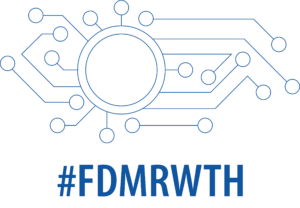
Source: rawpixel.com on Freepik
The findability and reusability of research data are important aspects of research data management and part of the FAIR principles (Findability and Reusability). The sustainable preparation and professional publication of research data offers various possibilities for reuse. Meta-analyses, optimization of own study designs and model calibrations are just a few examples. However, finding suitable data for reuse is increasingly becoming a challenge due to steadily growing data volumes and increasing diversification of data types and storage locations. So, what are the places to go and what are the options for finding data?
Searching in repositories
Data centers and repositories are common tools for making research data accessible. In repositories, the data are enriched with metadata that contain relevant information for findability and subsequent use. This makes the data findable in the catalog of the respective repository, but also in metadata search portals and in data search engines. Repositories are therefore both search and storage locations for accessible data. Research data repositories can be found via various search services:
- Re3Data – searchable registry of research data repositories
- org – community-maintained portal that allows searching for data and metadata standards, as well as repositories and policies
- OpenDOAR – searchable directory of open access repositories
- RIsources – DFG-funded portal that allows users to find repositories as well as other German infrastructures
Searching in portals
Due to the large number of repositories and the associated broadly distributed data storage, searching for published research data is often very time-consuming. Therefore, services such as data portals and index services have emerged that index the metadata of different repositories, enabling accumulated searches across the boundaries of individual repositories. These include:
- European Union Open Data Portal – Open Data Portal of the European Union
- DataCite – Search DOI-registered datasets
- B2FIND – search research data holdings from EUDAT data centers and other quality-assured repositories.
There are also portals with a subject-specific focus to facilitate finding specific research data. They include:
- VerbundFDB – search for studies, research data and instruments in empirical educational research.
- EMBL-EBI – search across various repositories of the European Bioinformatics Institute
- gesisDataSearch – search of social and economic research data in data repositories and metadata services
- MeX – metadata-based search of health research data (currently still in internal pilot phase)
Googling for data
Google Dataset Search is the name of Google’s data search engine. It searches the Internet for datasets that are described as such on publicly accessible websites using the schema.org standard. This allows anyone to find datasets on the Internet. More and more repository operators are also using schema.org to make data discoverable by search engines.
Learn more
For more information on the topic and how to improve findability, see the corresponding chapter in the Research Data Practice Guide.
If you have any questions about research data management or repositories in general, simply contact the IT-ServiceDesk. The RDM team looks forward to hearing from you.For more information on RDM, please also visit the RWTH web pages.
_____
Responsible for the content of this article is Sophia Nosthoff.





Leave a Reply
You must be logged in to post a comment.